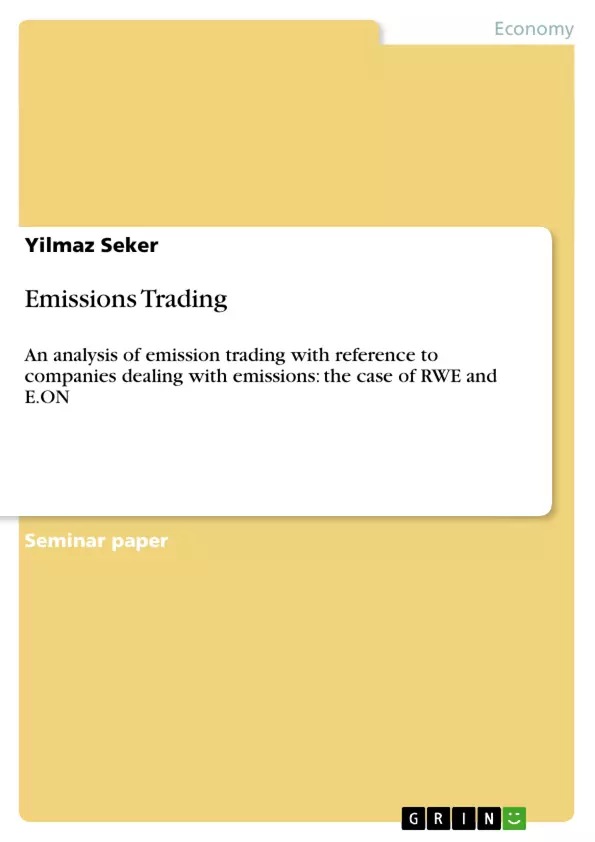1 Introduction
During the last century the Earth’s average surface temperature has
risen by 0.6 degrees Celsius. It is expected to warm by 1.4 to 5.8
degrees Celsius by the end of this century. The current warming trend is expected to cause extinctions. Many plant and animal species, already damaged by pollution and loss of habitat, are not expected to survive till the next century. Human beings are likely to face mounting impacts such as raising sea level, decrease of drinking water springs and, deserts may expand into existing farmlands. The main reason for growing thermometer is the industrialisation with burning of ever-greater quantities of oil, gasoline, and coal, the destroying of forests and some farming methods which especially causes carbon dioxide, methane, and
nitrous oxide. These activities cause an increasing amount of
‘greenhouse gases’ in the atmosphere. The effect is that the global
temperature is increasing artificially. Global warming involving the entire world which most countries joined an international treaty, under the umbrella of the United Nations, to begin to consider what can be done to reduce global warming. Therefore, in 1997 governments agreed to an addition to the consisting treaty, namely the ‘Kyoto Protocol’ (UNFCCC, 2005).
[...]
Inhaltsverzeichnis (Table of Contents)
- Introduction
- The Kyoto Protocol
- The European Climate Change Programme
- Emission Trading in Germany: The case of RWE and E.ON
- Conclusion
Zielsetzung und Themenschwerpunkte (Objectives and Key Themes)
This paper aims to analyze emission trading in the context of companies dealing with emissions, specifically focusing on the cases of RWE and E.ON.
- The Kyoto Protocol and its significance in reducing greenhouse gas emissions
- The role of the European Climate Change Programme in addressing climate change
- Emission trading as a mechanism for achieving emission reductions
- The experiences of RWE and E.ON in implementing emission trading schemes
- The potential of emission trading as a tool for sustainable business development
Zusammenfassung der Kapitel (Chapter Summaries)
- Introduction: This chapter introduces the pressing issue of global warming and its potential consequences. It highlights the role of industrialization and greenhouse gases in driving climate change and discusses the international efforts to combat this issue, particularly the Kyoto Protocol.
- The Kyoto Protocol: This chapter outlines the key provisions of the Kyoto Protocol, emphasizing its legally binding measures for reducing greenhouse gas emissions by industrialized countries. It also introduces the flexible mechanisms of the Kyoto Protocol, including Joint Implementation, the Clean Development Mechanism, and International Emission Trading.
- The European Climate Change Programme: This chapter delves into the European Union's efforts to address its own greenhouse gas emissions, specifically focusing on the European Climate Change Programme (ECCP). It explores the implementation of the ECCP and its impact on the European Union's environmental policies.
- Emission Trading in Germany: The case of RWE and E.ON: This chapter examines the implementation of emission trading schemes in Germany, using the examples of RWE and E.ON, two major companies dealing with emissions. It explores the challenges and opportunities associated with emission trading for these companies and analyzes their experiences in the context of broader regulatory frameworks.
Schlüsselwörter (Keywords)
This paper focuses on the keywords: emission trading, greenhouse gas emissions, Kyoto Protocol, European Climate Change Programme, RWE, E.ON, sustainable business development, and climate change.
Frequently Asked Questions
What is the significance of the Kyoto Protocol?
The Kyoto Protocol is an international treaty aimed at reducing greenhouse gas emissions to combat global warming.
How does emissions trading work for companies?
It is a market-based mechanism that allows companies to trade emission allowances, encouraging them to reduce their carbon footprint efficiently.
Which German companies are used as case studies?
The paper specifically focuses on the experiences of RWE and E.ON in implementing emission trading schemes.
What is the European Climate Change Programme (ECCP)?
The ECCP is the European Union's strategy to implement measures that reduce greenhouse gas emissions across member states.
Why is industrialization linked to global warming?
Industrialization involves burning large quantities of fossil fuels (oil, coal, gasoline), which increases atmospheric carbon dioxide and other greenhouse gases.
- Quote paper
- Yilmaz Seker (Author), 2005, Emissions Trading, Munich, GRIN Verlag, https://www.grin.com/document/135456



